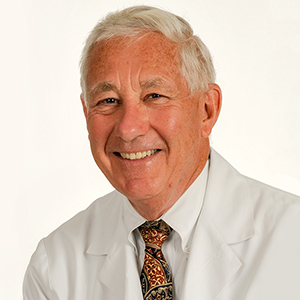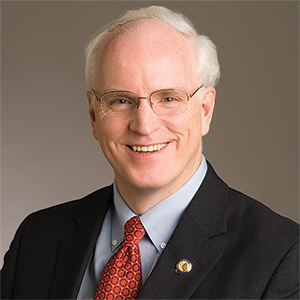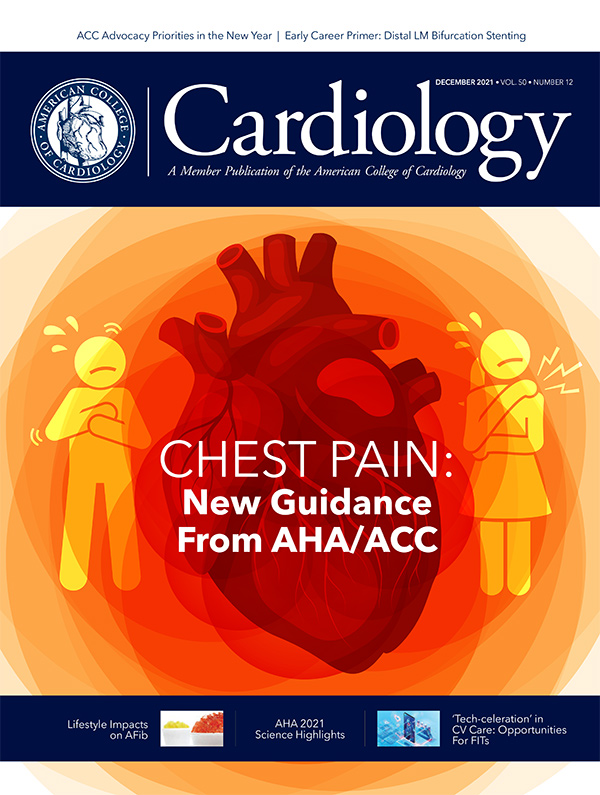Editors’ Corner | Reflections on 2021: COVID-19, CVD and Health Inequity
"A world that is greatly out of balance in matters of health is neither stable nor secure."
Margaret Chan, MD, former World Health Organization director-general

The month of December always brings a look back and a look forward. Looking back on this year, there's no surprise. The story was COVID, COVID, COVID. Appropriately so, with an astonishing 266 million people worldwide infected by the coronavirus as of early December, a number that's likely low because of under-reporting. Moreover, more than 5.2 million people have died from COVID-19 (probably also underestimated).
Equally astonishing, the U.S. holds the unenviable distinction of leading "developed" countries (that share data), with 49.1 million infections and more than 789,000 deaths. Drill down a bit on the number of infections and deaths in different countries and some interesting questions arise. India has had 35 million infections and 500,000 deaths; Brazil 22 million infections and 616,000 deaths; United Kingdom 10.5 million infections and 146,000 deaths; and Russia 9.6 million infections and 277,000 deaths, all as of early December.
The differences are striking and are based on multifactorial issues. What makes health and health care different in different countries and different within countries? What drives such health care disparities?
Looking ahead, we must work to answer these questions and work together to provide equitable care to individual patients and to communities and countries.
NCDs in the Spotlight
The "twin pandemic" of COVID-19 and noncommunicable diseases (NCDS), which include cardiovascular diseases, is exacerbating the rates of mortality and death globally. NCDs tend to occur at higher rates in racial-ethnic groups, largely due to social determinants of health like economic stability, community safety, education, etc., and have been observed as both the most prevalent and most dangerous comorbidities in patients with COVID-19.
According to a recent report from the National Forum for Heart Disease and Stroke Prevention, "COVID-19 is worsening the cardiovascular disease pandemic, and cardiovascular conditions continue to intensify the COVID-19 pandemic. These intertwined processes victimize people of all races, especially Hispanic and non-Hispanic Black people."
Richard Horton, MB, ChB, editor-in-chief of The Lancet, powerfully stated it has become clear that, "In the case of COVID-19, attacking NCDs will be a prerequisite for successful containment." Of course, finding and implementing solutions is not that simple. Truly attacking NCDS requires global collaboration, systemic changes in resource allocation and patient access to care, difficult conversations and introspection around implicit bias, local and national health policy changes and more.
This is Our Fight
All this may sound like platitudes, because as cardiologists our focus is on cardiac care. For example, there's likely little we can do to improve childhood education or alleviate unemployment. In addition, as cardiologists there may be a certain feeling that COVID-19 is not within our purview – leave all that social, economic and even pulmonary "stuff" to the public health gurus and the pulmonologists.
Yet, COVID-19 care is squarely inside our wheelhouse and cardiologists will play pivotal roles in the battle against COVID-19.
Heart disease and acute myocardial injury may occur in one-quarter of COVID-19 patients, leading to large increases in intensive care admissions and a 20-fold higher mortality than in patients without myocardial involvement. Dysrhythmias (paroxysmal supraventricular tachycardia, atrial fibrillation, ventricular tachycardia) are common. The inflammatory response syndromes in COVID-19 can lead to further myocardial dysfunction/failure, pericardial effusions, antimyocardial antibodies, endothelial dysfunction with its attendant arterial and venous prothrombotic syndromes, and pulmonary hypertensive syndromes from lung infection. And, who knows what "Long COVID" (Post-Acute COVID-19 Syndrome) has in store for the heart.
Hospitalizations for acute myocardial infarction or heart failure decreased by approximately 25% to 50% early in the pandemic even though active infections in admitted patients were less than 10%. Obviously diagnostic catheterizations and interventions across the board were affected, likely due to lower utilization of routine medical care and preventative cardiac interventions, along with the impact of physical inactivity on the development of obesity. Hospitalized COVID-19 patients were frequently found to have elevated troponin levels and other cardiovascular complications included thrombotic events such as deep vein thrombosis, pulmonary embolism and stroke.
Finding Our Way Forward
What can we do and where do we turn for guidance? For starters, how about the guidelines? The 2019 ACC/American Heart Association guideline for cardiovascular disease prevention recommends consideration of social risk in clinical risk assessments for cardiovascular events. This means asking patients questions we usually do not – mostly about socioeconomic issues. Efforts are also underway to identify specific questions that if answered "affirmatively" might trigger further exploration. Stay tuned – how we calculate risk assessment is certain to change!
None of us thinks we're biased but looking hard in the mirror is important. We want our patients to trust us, yet our hidden biases can make empathy for a patient more difficult. Patients quickly recognize this. We also may have to work harder to get certain patients the best therapies if the system is also biased.
If COVID-19 did one good thing it has made us all recognize that telehealth has enormous capabilities, and that virtual care might make a big dent in the inability of underserved populations to access health care. But even this is not as simple as it sounds. We take access to the internet for granted but, for many such access is a luxury and even impossible. Addressing this digital divide now seems to be on the horizon with the recent passage of the infrastructure legislation that has funds dedicated to expansion of broadband access across the U.S.
Continuing our work in the health equity space to achieve a culture of health where every person reaches their full cardiovascular health potential as a natural right and to create a culture of health equity in cardiovascular medicine is also important. This Vision developed by the ACC's Presidential Health Equity Task Force, will require change management to create a mindset that health equity is an essential component of quality cardiovascular care and commitment for cardiovascular health equity principles and policies for action through education, advocacy and science.
Continuing to partner on global advocacy efforts to encourage heart healthy choices; promote affordable, quality care; and advocate for cardiovascular health in the U.S. and across the world is another important solution. The ACC's State and International Chapters and long-standing relationships with partner cardiovascular societies, nongovernmental organizations, payers, industry and other stakeholders worldwide are critical assets in this effort as we look for new perspectives and innovative ways to solve a problem that can at times feel insurmountable.
In the U.S., we need to address the structural inequities that result in health outcome disparities. We need to strengthen the health care infrastructure and modernize health care delivery with digital innovation and emerging technologies. These efforts should help to advance equitable cardiovascular outcomes among diverse populations.
These are lofty goals. Solving the problems of health inequity is complex. Yet, we all can help. Changes that will affect health care inequality will come slowly, but hopefully surely, and together we can make a difference in the fight against COVID-19 and cardiovascular disease.


Peter C. Block, MD, FACC, is a professor of medicine and cardiology at Emory University Hospital and School of Medicine in Atlanta, GA. John Gordon Harold, MD, MACC, is professor of medicine at Cedars-Sinai Smidt Heart Institute, and David Geffen School of Medicine at UCLA.
Clinical Topics: Arrhythmias and Clinical EP, Cardiovascular Care Team, COVID-19 Hub, Heart Failure and Cardiomyopathies, Pericardial Disease, SCD/Ventricular Arrhythmias, Atrial Fibrillation/Supraventricular Arrhythmias, Acute Heart Failure
Keywords: ACC Publications, Cardiology Magazine, Cardiovascular Diseases, Healthcare Disparities, COVID-19, Atrial Fibrillation, American Heart Association, Troponin, Coronavirus, Health Equity, Cardiologists, Vulnerable Populations, Noncommunicable Diseases, Global Health, Public Health, Ethnic Groups, Pericardial Effusion, Empathy, Trust, African Americans, Unemployment, Pulmonologists, Pandemics, Syndrome, Developed Countries, Digital Divide, Goals, Social Determinants of Health, Heart Failure, Myocardial Infarction, Tachycardia, Ventricular, Telemedicine, Cardiology, Hospitalization, Stroke, Resource Allocation, Health Policy, Financial Management, Risk Assessment, Schools, Internet, Critical Care, Lung, Obesity, Catheterization, Venous Thrombosis, Outcome Assessment, Health Care, Prejudice, Hospitals
< Back to Listings


